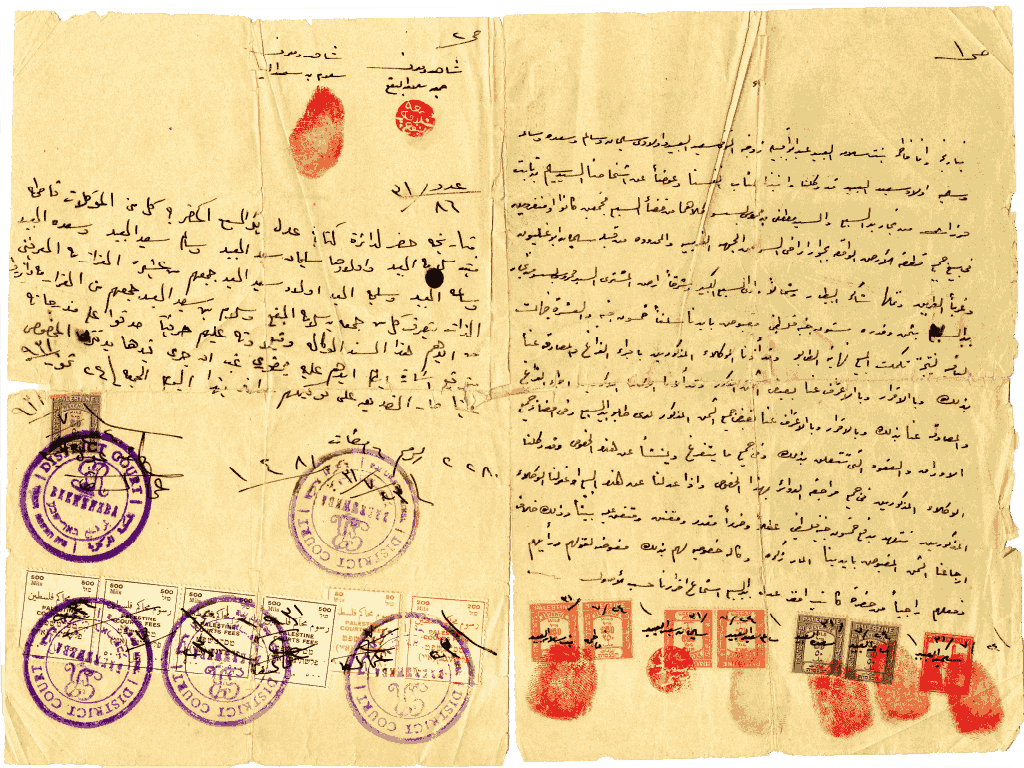

BFA is the largest collection of original documents belonging to a single Palestinian family and the living memory of Mahrous Bseiso, chronicling Palestinian life from 1906-1977.
Archive
Archive
Excerpts around the law, people, and places of historic Palestine contextualize our collection.
Archives
/Documents
Stories
Stories
Read about Palestinian culture, art, and daily life.

Shak Mustafa is a Palestinian poet and songwriter using his music to channel the pain and resilience of his people. Born in war-torn Palestine, he crafts raw, unfiltered lyrics that confront the brutal realities of occupation, oppression, and decades of suffering. His hardcore sound, filled with haunting and explicit storytelling, refuses to shy away from the truth, aiming to shake the world awake to the horrors of genocide and ethnic cleansing. His debut EP, October 8th, is his defiant cry for justice, a testament to resistance, and a powerful voice for the unheard.
Read MoreNews
News
Elevating official UN statements and other milestone events for BFA along our journey for justice

Mexico's recognition of Palestine signals support for justice and human rights. President Sheinbaum’s stance challenges diplomatic norms, proving politics isn’t tied to background. By welcoming Ambassador Nadya Rasheed and criticizing Israel’s actions, Mexico pushes for Palestinian independence and peace.
Read MoreMedia
Media
Listen to interviews, original compositions, and other contributions from the Bseiso family and community

Executions and Mass Graves in Tantura

Shouting at the Wall - Mc Abdul

Khabib Praises Ireland for Supporting Palestine

Deira - Saint Levant

Wake Up - Llunr

Palestinian Embroidery

A Cry For God

Desert Swan

A Palestinian Life

The Story of Khalid Ibn Al-Walid: The Sword of Allah

Palestinian Soap
Ancestry
Stay Connected!
Subscribe to our newsletter for the latest updates.














